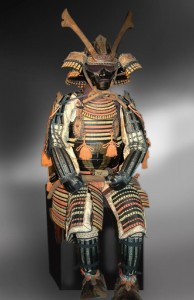A previous posting noted how the eighth-century poetry compilation, Manyoshu is permeated with a proto-Shinto sentiment. I’ve now come across another article on the subject by Furukawa Teishi. It’s entitled ‘The Tradition of Sei-mei-shin’ and was included in the Proceedings of the Second International Confererence on Shinto Studies published in 1955.
Furukawa’s article comes up with an interesting statistic. The words kiyoshi (clean) and sayakeshi (refreshing) occur about a hundred times… a ratio of once to every forty poems or so. In addition, there are terms like akirakeku (bright, clear) and sayakani (clear, clean). It reflects an aesthetic of purity, by which beauty is associated with a lustrous quality. (Interesting, isn’t it, how kirei in Japanese means both clean and beautiful.)
In Manyoshu such words are generally applied to nature, but they occasionally take on a moral overtone:
Polish it like a double-edged sword,
Make it ever bright – the name
Borne through ages, clean and without spot!
Misogi (cold water purification) also features, used with the obvious intention of marrying the external cleansing to a pure heart. Furukawa provides an example, though no explanation is given for the rather puzzling nature of the verse. What’s with the poet’s wife exactly?
Clean precious riverbed
In it do I purify myself
For my wife’s sake
(tamakuze no/kiyoku kahara mi/misogi shite/iware inochi wa/imo ga tame koso)
Furukawa finishes his article by taking up the notion of seimei (cleanliness) and the sei-mei-shin (clean bright heart) in Japanese culture. He sees these qualities as central, leading to a favouring in cultural terms of harmony, sincerity and obedience. This is expressed above all in bushido, the samurai code, where bravery and purity of soul is allied to makoto (sincerity, integrity) derived from Confucianism. In Manyoshu poetry, then, lie the seeds of the samurai spirit.
Polish your sword: polish your heart!


Leave a Reply